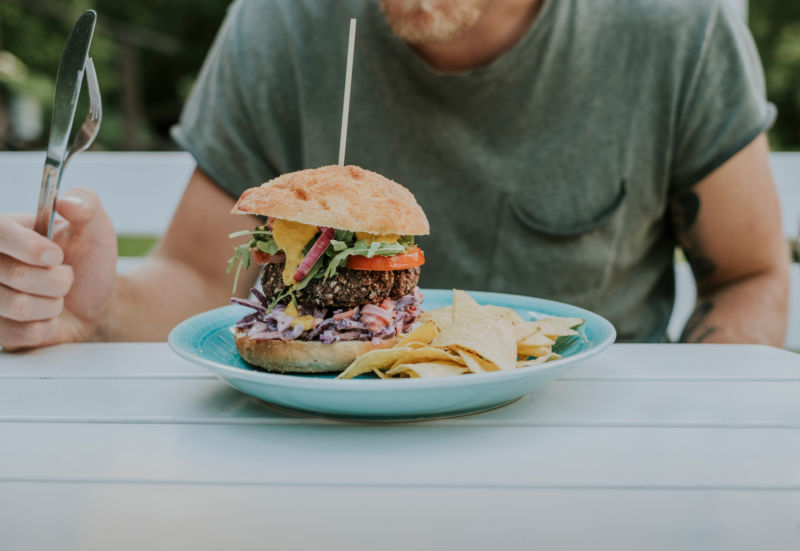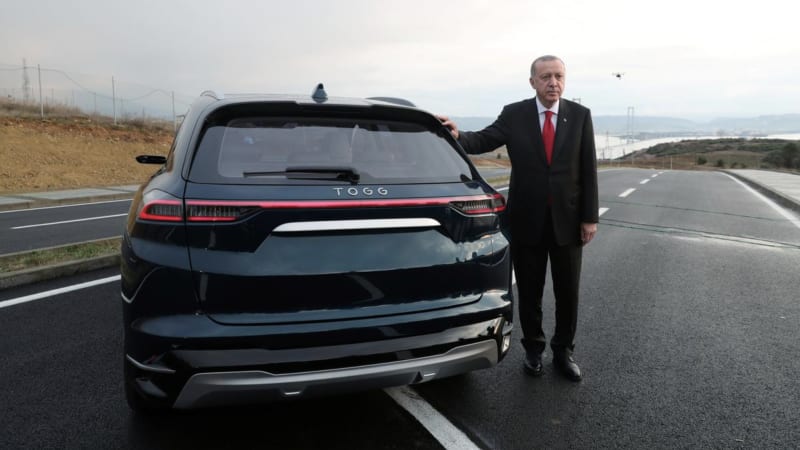https://arstechnica.com/?p=1637125

Svante Berg | EyeEm | Getty Images
Amid the growing popularity of the Impossible Burger, Beyond Meat products, and other plant-based meat alternatives, the meat industry has declared war.
Despite
coming out with their own competing alternative and plant-based products
, various meat industry-backed efforts have claimed that the vegetarian-friendly foods are harmful and “ultra-processed.”
They’ve also compared them to dog food
.
Now, there’s a new claim: that they’ll make men grow breasts.
As first noted by The Washington Post, an article labeled as “news” in the trade publication Tri-State Livestock News claims that eating Burger King’s Impossible Whopper—a new faux-beef menu item—could cause men to grow breasts.
Author James Stangle, a doctor of veterinary medicine in South Dakota, orders up some sizzling math, hold the evidence. He writes:
The impossible whopper has 44mg of estrogen and the whopper has 2.5ng of estrogen. Now let me refresh your metric system. There are 1 million nanograms (ng) in one milligram (mg). That means an impossible whopper has 18 million times as much estrogen as a regular whopper. Just six glasses of soy milk per day has enough estrogen to grow boobs on a male. That’s the equivalent of eating four impossible whoppers per day. You would have to eat 880 pounds of beef from an implanted steer to equal the amount of estrogen in one birth control pill.
The Post also notes that conservative news outlets, such as National File and MichaelSavage.com, have parroted the claims. “In short, the Impossible Burger is a genetically modified organism filled with calorie-dense oils that can make a man grow breasts if eaten in sufficient quantity,” Tom Pappert, editor in chief of the National File, concluded.
Plant-based bull
The claim that soy-based foods, like the Impossible Whopper, will “feminize” men is a tired one that has been around for years—and still lacks evidence to back it up.
It’s based on the fact that soy contains a high concentration of isoflavones. These are plant-derived chemicals that can act like estrogen in some tissues in mammals but are much weaker than the real sex hormone.
Soy consumption and its isoflavones have been studied extensively. There have been thousands of studies on its hypothetical benefits and harms to human health—from possibly protecting against certain types of cancers, possibly preventing heart disease, and possibly easing the symptoms of menopause, as well as possibly contributing to poor cognition in older age, and possibly reducing thyroid hormone levels. For general reviews of the findings, click
and
.
Then there are the studies that have looked into whether isoflavones can feminize men and infants and interfere with fertility and development. The general concern goes back decades and has been bolstered by the occasional case report and animal study, which have questionable applicability to human health overall.
In particular, the fear of men growing breasts from soy consumption was highlighted in a 2008 case report in which a 60-year-old man developed benign swelling of male breast tissue and elevated estrogen levels. Doctors reported that the man consumed a whopping three quarts of soymilk a day. That would provide around eight times the intake of isoflavones that have been recorded in older men in Japan and Shanghai who eat soy-heavy diets.
One nutrition researcher noted of the case report that such excessive intake of pretty much any nutritious food could result in untoward effects. For instance, if the soymilk had been fortified with calcium, it would have resulted in an overdose that can cause hyperkalemia.
Overall, analyses of numerous studies have found no evidence that isoflavone consumption in normal ranges affects male hormone levels or sperm and semen quality. Likewise, there is no conclusive evidence that soy-based infant formula has adverse effects, either. The American Academy of Pediatrics has concluded that “soy protein-based formulas are a safe and nutritionally equivalent alternative to cow milk-based formula for term infants whose nutritional needs are not met from breast milk.”
While nutrition researchers say long-term human studies could help provide more concrete conclusions, for now, there’s no reason to think eating an Impossible Whopper will increase anyone’s cup size.
via Ars Technica https://arstechnica.com
December 27, 2019 at 10:49AM

